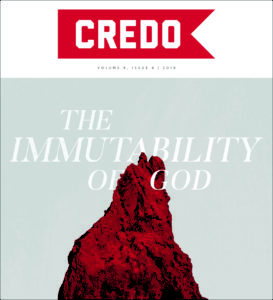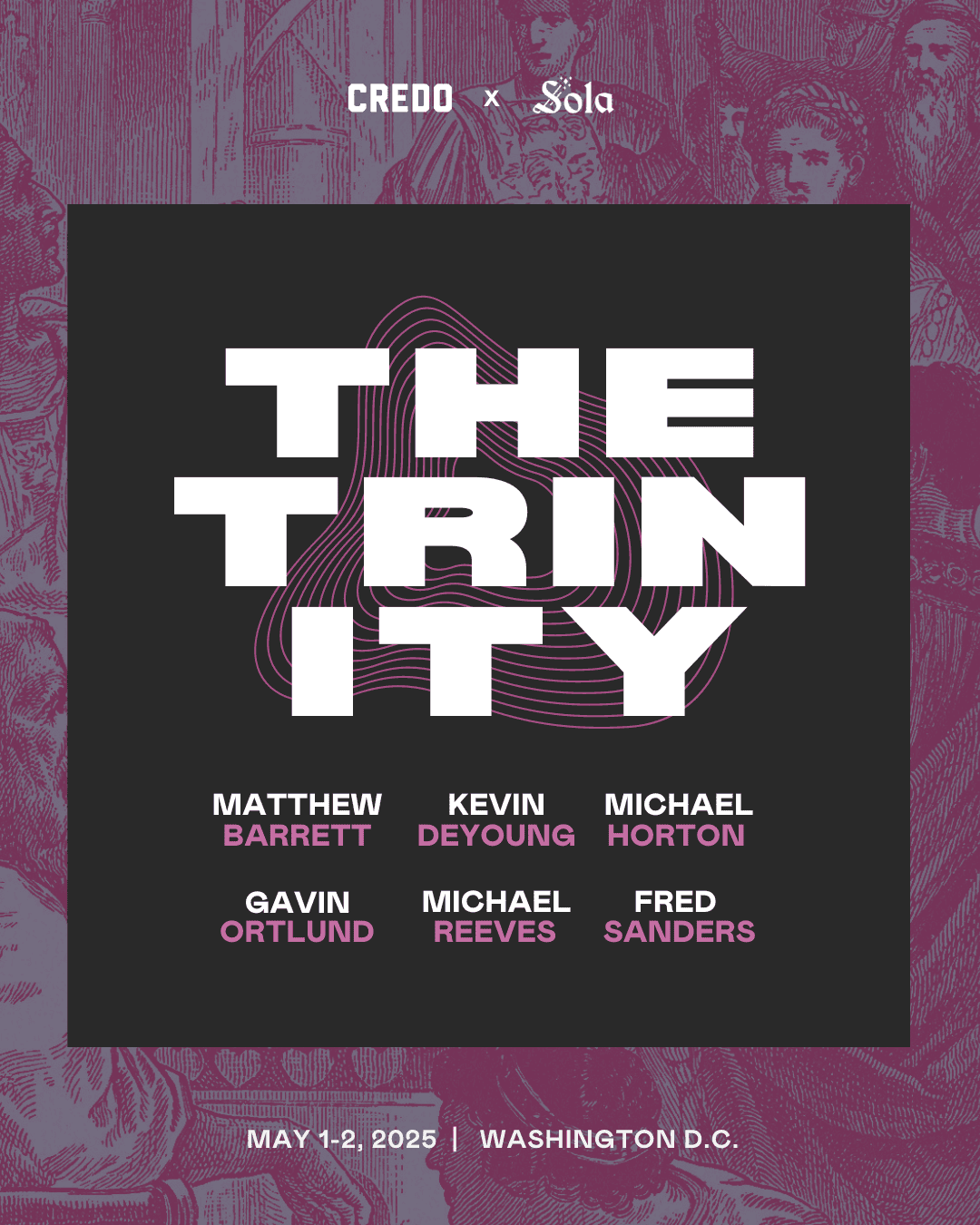The church today struggles in many ways to understand what God’s immutability means and entails for Christian theology and for the church. In this interview, we talk with six different pastors and theologians about immutability, giving them the opportunity to explain why it matters and how the church today can answer objections to this attribute.
Richard Barcellos | Immutability, along with other “classical” attributes of God, are seeing somewhat of a resurgence today. Why is this and should we see it as a good trend?
The answer is probably a two-fold and related reason. First, because there is somewhat of a resurgence in reading (and writing on) older literature on the doctrine of God (e.g., Augustine, Aquinas, Perkins, Ames, Owen). Second, because some in our day (i.e., within Calvinistic Evangelicalism and the confessional Reformed) are fudging on the older understanding of divine immutability, along with other “classical” attributes of God.
The first can be seen in the writings of James Dolezal, Scott Swain, John Webster, and others; the second in writers who advocate relational mutability, two modes of existence in God, and covenantal properties.
Yes; a very good trend, indeed!
Richard C. Barcellos is pastor of Grace Reformed Baptist Church, Palmdale, CA, and Associate Professor of Exegetical Theology at IRBS Theological Seminary, Mansfield, TX. He is the author of The Lord’s Supper as a Means of Grace, Getting the Garden Right, The Covenant of Works, and God plus the World: Confessing the Doctrine of Trinitarian Creation (forthcoming).
Peter Sanlon | What three theologians from church history are the most important ones to read on an attribute like immutability?
The three most important theologians to read on immutability are without a doubt the great ‘A Team’ – Augustine, Anselm and Aquinas. Their central claims regarding immutability are concise and can be found in Augustine’s City of God 11,10; Anselm’s Monologion 25; and Aquinas’ Summa Theologica 1a, Q9. These brief outlines of the topic form part of a vast spiritual vision of God – the implications of which are found throughout their volumnous works. Later and modern writers do little more than draw out the implicaitions or summarise these foundational theologians.
Peter Sanlon (PhD) is Director of Training for the Free Church of England. He holds theology degrees from Cambridge and Oxford University. His doctoral research has been published as Augustine’s Theology of Preaching. He is also author of Simply God: Recovering the Classical Trinity.
Steven Duby | A popular version of immutability teaches that God doesn’t undergo change unless he decides to do so. How is this nuanced version of the doctrine a departure from the classical understanding?
A classical Christian understanding of God’s immutability would maintain that God cannot – and need not! – change even by a divine decision to alter himself. This is fundamentally because God is already complete and fulfilled in himself in the fellowship of Father, Son and Holy Spirit. There is nothing in him that is yet to reach actualization.
Furthermore, God is not made up of some parts that can be insulated from change and other parts that are susceptible to change. He is not made up of parts at all. There is thus no safe way to say that the would-be parts of God’s being that (we think) “really matter” would remain the same while the other would-be parts that (we think) are less significant would be open to change. Within the logic of a more traditional view, the impetus for positing divine self-limitation or self-alteration is simply not there. He does not exist in a competitive relationship with creatures’ being or agency, so he doesn’t have to limit himself to “make room” for us. He also transcends time, so he doesn’t have to be updated as to what is happening in history and then change his plan.
Steven J. Duby (PhD) is assistant professor at Grand Canyon University, where he teaches theology courses for undergraduates and seminary students. He is the author of Divine Simplicity: A Dogmatic Account (T & T Clark Studies in Systematic Theology, 2016). Duby lives in Phoenix, Arizona, with his wife, Jodi, and their three children.
Sam Renihan | One rebuttal to the teaching of immutability is that it makes God “immobile.” Why is this not the case? Why is immutable not synonymous with immobility?
To answer this question, we should consider an analogous situation. In 2 Timothy 2:13 Paul says, “if we are faithless, [God] remains faithful—for he cannot deny himself.” If God “cannot” deny himself, is his omnipotence compromised? No. Rather, if God were able to deny himself, he would not be able to execute all his purposes infallibly. In which case, he would not be omnipotent, nor could he “remain faithful,” neither would he be God. So, we see that by denying imperfections to belong to God, we magnify his perfections.
And when we deny that God can be changed, we do not therefore declare him immobile; we declare him unstoppable. God tells us in his word that “he who keeps Israel will neither slumber nor sleep” (Ps. 121:4). A humbled Nebuchadnezzar learned that God “does according to his will among the host of heaven and among the inhabitants of the earth; and none can stay his hand” (Dan. 4:35). The unchangeable God is the unstoppable God, neither slumbering nor sleeping, doing according to his will in all creation; and none can stay the hand of the right arm of Jehovah.
Samuel Renihan (MDiv, Westminster Seminary California; PhD, Free University of Amsterdam) serves as pastor of Trinity Reformed Baptist Church in La Mirada, California. He has written a number of books including God without Passions: a Reader and a Primer, and From Shadow to Substance: The Federal Theology of the English Particular Baptists (1642-1704).
Paul Smalley | In what ways can the church benefit, in practical ways, from the championing of the doctrine of immutability?
The church needs to know the doctrine of immutability so that people can rest completely upon the Lord their Rock (Deut. 32:4; Ps. 18:2). When we see our lives passing away like smoke, our hearts can lean upon him who remains unchanged even though heaven and earth pass away (Ps. 102:3, 25–27). As the church passes through great trials and temptations, “Jesus Christ is the same yesterday and today and forever” (Heb. 13:8). The church needs to know the doctrine of immutability so that people can rest completely upon the Lord their Rock (Deut. 32:4; Ps. 18:2). Share on X
In our ever-changing world, nothing can change God or his good plan in Christ. Our sins may bring divine chastisement upon us, but if we belong to the Lord we will not perish, for he does not change (Mal. 3:6). We can trust him though we cannot trust ourselves, for he is pure light without a shadow of change (1 John 1:5; James 1:17). His promises cannot change (Ps. 119:89), which is the anchor of our souls as we believe in Jesus Christ (Heb. 6:17–20). His purposes cannot fail—how blessed is the people whose God is the Lord (Ps. 33:10–12)! Therefore, let us trust wholly in him and imitate him as faithful image-bearers in justice, integrity, and love.
Paul M. Smalley (ThM, Puritan Reformed Theological Seminary) is faculty teaching assistant to Joel Beeke at Puritan Reformed Theological Seminary. He is the co-author of Reformed Systematic Theology, Volume 1: Revelation and God.
Josh Malone | Pastors may be intimidated by an attribute like immutability, unsure how to introduce it to their people. Are there ways to introduce a biblical understanding of immutability within the regular life of the church, whether it be preaching, liturgy, or the communion of the saints?
While God’s incommunicable attributes, like immutability, are admittedly difficult to grasp abstractly, graciously God manifests his nature vividly in the drama of redemption. Attentiveness to this can really deepen one’s biblical preaching, and should be an occasion to draw the hearts and minds of God’s people upward toward him.
The history of divine fellowship itself is underwritten by God’s unchanging nature. The psalmist writes that the heavens and earth are “the work of your hands… they will perish, but you will remain; they will all wear out like a garment. You will change them like a robe, and they will pass away, but you are the same, and your years have no end” (Ps. 102:25-27). This affirmation is central in God’s dealings with creatures, particularly in light of our human rebellion. While humans fail in all sorts of ways, threatening to put our relation to God in jeopardy, God himself is unfailingly for us – unchangeably for us – and it is precisely this, which secures errant creatures toward the ends, which God has called them. Note this same connection in Malachi 3, “For I the Lord do not change; therefore you, O children of Jacob, are not consumed” (Mal. 3:6). It is the utter constancy of God, his immutability, which secures his relationship with sinners on their way to glory. As Dorothy Sayers reminds us: The dogma is the drama.
Josh Malone (PhD, University of Aberdeen) is Associate Professor of Theological Studies at Palm Beach Atlantic University. Dr. Malone has written two books which are under review and proposal for publication.
Image credit: screenpunk – blue wall

